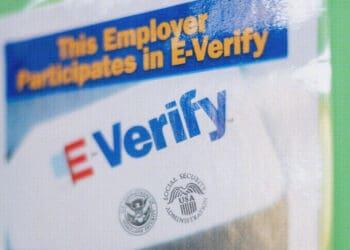The Inflation Reduction Act (IRA) stands as the largest energy incentive effort in U.S. history, benefitting both private and public sector projects. Any project that incorporates clean energy properties, regardless of industry, can benefit from the investment tax credits, with those meeting prevailing wage & apprenticeship (PW&A) requirements eligible for an enhanced credit. Many companies incorporating clean energy properties into their projects are either unaware of the IRA PW&A incentive or struggling to access and leverage the credits worth millions of dollars, because of the complicated requirements. Laura Cataldo, a director in Baker Tilly’s development advisory practice, explores the details.
The first step in determining if your project qualifies for a piece of the $270 billion of energy incentives and tax credits allocated under the IRA is establishing your eligibility. The scope of eligibility extends beyond traditional energy production or manufacturing facilities, encompassing a wide array of projects, spanning a diverse range. If your project includes wind, solar, geothermal, combined heat and power, energy storage, electric vehicles, charging stations or renewable fuels it is eligible for one of the 70-plus distinct tax credits that fall under the IRA.
Benefits extend to both private- and public-sector projects. Private-sector owners can leverage tax credits as a direct offset to federal tax liabilities for eligible energy properties, with the flexibility to utilize credits up to three years retrospectively and 22 years prospectively. In a significant departure from past tax credit programs, the IRA enables nontaxable entities, such as local governments and nonprofit organizations, to receive direct payments in lieu of tax credits from the IRS.
Defining the eligible energy property of a project upfront is important as it can greatly impact the type and amount of credits project owners can pursue. Projects that either meet the IRA PW&A criteria or meet one of the two safe harbor criteria — establish that construction had begun before Jan. 29, 2023, or verify that the project generates less than one megawatt (MW) of energy — can dramatically boost the value of IRA tax credits by as much as five times the base value. But meeting compliance criteria to qualify for the PW&A bonus credit can be an arduous and complicated process. Receiving the enhanced credit requires ongoing and prompt cure of noncompliance, payment of penalties and substantial record-keeping.
Navigating the complex IRA PW&A requirements
Compliance with IRA prevailing wage and apprenticeship requirements presents a complex challenge that extends beyond the scope of the prevailing wage requirements established by the Davis-Bacon Act.
The IRA, unlike previous regulations, functions independently of labor laws such as Davis-Bacon, though it remains aligned with some of their core principles. While Davis-Bacon establishes definitions for laborers and mechanics and sets the framework for wage determinations, the IRA’s rules and regulations differ considerably. Taxpayers, or project owners, play a crucial role under the IRA, acting as agents responsible for selection of wage determinations, defining the start of construction and maintaining detailed records, all guided by longstanding tax regulations.
Under the IRA, ensuring compliance with prevailing wage and apprenticeship standards involves managing three levels of apprenticeship requirements and facing penalties for noncompliance. The obligation of record-keeping and the possibility of IRS audits highlight the significant responsibilities placed on project owners.
Prevailing wage
To satisfy IRA PW&A requirements, projects must adhere to federal guidelines for Davis-Bacon prevailing wage compliance, which entails keeping and maintaining adequate records to verify that prevailing wages were paid. Prevailing wage, by definition, refers to the combined hourly rate of wages and benefits paid to workers in a particular labor classification for a specific type of construction in the area where the construction takes place, as determined by the Department of Labor.
These prevailing wage rates are fixed at the beginning of construction unless there is a significant change in scope. Wage determination requests must be submitted within 90 days of construction beginning, and there is a 30-day window following wage determination to rectify any back pay before interest starts to accumulate. There are also specific guidelines for treatment of foremen, owner-operators and apprentices.
Apprenticeship requirements
PW&A imposes three distinct apprenticeship requirements: labor hour requirement, participation requirement and ratio requirement.
At the project level, the labor hour requirement mandates that a specific percentage of work be completed by qualified apprentices enrolled in the registered apprentice program (RAP). The required percentage is determined by the project’s construction start date.
At both the contractor and project level, the participation requirement stipulates that any contractor employing four or more individuals at any time during the project must employ at least one qualified apprentice to avoid penalties. Contractors can meet this requirement by enrolling an employee in a group RAP, establishing their own RAP or applying for a good-faith exception, which comes with its own set of stringent rules.
At the daily level, the ratio requirement specifies that each day an apprentice works on the project, the applicable apprentice-to-journey worker ratio as defined by the RAP standards must be maintained. This necessitates careful planning to ensure compliance with the ratio and adequate staffing of the project. If the ratio is not maintained, the excess apprentices must be paid prevailing wages, and their hours do not count toward the labor hour requirement.
Penalties
Project owners and their contractors are required to maintain and preserve comprehensive records to demonstrate compliance with the apprentice labor hour, participation, and ratio requirements. Failure to do so may result in noncompliance or intentional disregard of PW&A penalties. Because penalties are evaluated per worker, per hour and per calendar year of the project, they can quickly add up and have a significant impact on the total value of the credit. While waivers for prevailing wage penalties are available, they come with specific conditions, such as making a corrective payment within 30 days of taxpayer notification of the underpayment. This underscores the importance of diligent compliance monitoring and meticulous record-keeping.
Working with contractors
The apprenticeship requirement poses challenges for many project owners and their contractors, as apprenticeship programs are not standard training practices in all regions of the country. Project owners are wise to seek contractors that participate in a registered apprentice program whenever possible. Although contractors who do not employ apprentices are not barred from working on IRA-eligible projects, they must request an apprentice from a registered apprenticeship program to demonstrate a good-faith exemption.
Credit seekers must ensure they provide contractors with the correct wage determination sheet to comply with the prevailing wage requirement. However, many contractors and developers lack experience with Davis-Bacon projects, leading to confusion about who is covered by prevailing wages and how to calculate fringes and pay apprentices. Both project owners and contractors are advised to seek external assistance to navigate the opportunities and manage the complexities of PW&A tax credit compliance.
Unlocking IRA potential
The IRA represents a historic opportunity for both private and public sector projects to benefit from significant energy incentives. As ESG and sustainability pressures mount, the ability to receive an investment tax credit for any clean energy-related project further incentivizes project owners and investors to prioritize energy-efficient buildings and the adoption of sustainable materials. But determining IRA tax credit eligibility is not always straightforward and compliance, particularly for the enhanced IRA PW&A credits, is complex. Project owners and contractors must maintain rigorous records and seek knowledgeable tax guidance to plan and manage PW&A compliance throughout the project lifecycle. Doing so not only ensures eligibility for the maximum credits but also mitigates the risk of substantial penalties. By proactively complying with these standards and leveraging external expertise, credit seekers can benefit from the full potential of the IRA’s energy incentives.




 Laura Cataldo is a director in Baker Tilly's development advisory practice. She works with real estate and construction firms of all sizes to evaluate business practices and assist with management challenges.
Laura Cataldo is a director in Baker Tilly's development advisory practice. She works with real estate and construction firms of all sizes to evaluate business practices and assist with management challenges. 








